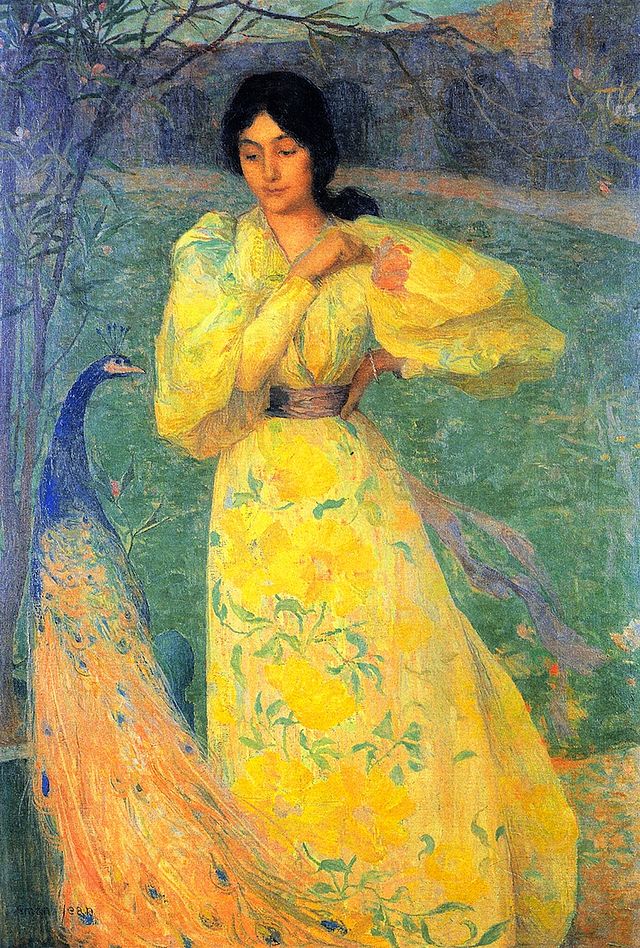A selection from 'Zoo Poems'.
Some primal TERMITE knocked on wood
And tasted it, and found it good,
And that is why your cousin May
Fell through the parlor floor today.
THE COW is of the bovine ilk;
One end is moo, the other milk.
THE RHINO is a homely beast,
For human eyes he’s not a feast.
Farewell, farewell, you old rhinoceros,
I’ll stare at something less prepocerous.
I don’t mind EELS/ Except as meals./ And the way they feels.
The POULTRIES
Let’s think of eggs./ They have no legs.
Chickens come from eggs/ But they have legs.
The plot thickens;/ Eggs come from chickens,
But have no legs under ’em./What a conundrum!
You get some words regarding mice,
You get a kitty in a trice.
By two a.m. or thereabouts,
The mouse is in, the CAT is out.
It dawns upon you, in your cot,
The mouse is silent, the cat is not.
Instead of kitty, says your spouse,
You should have got another mouse.
The truth I do not stretch or shove
When I state that the DOG is full of love.
I’ve also found, by actual test,
A wet dog is the lovingest.
Behold the DUCK.
It does not cluck.
A cluck it lacks.
It quacks.
It is specially fond of a puddle or pond.
When it dines or sups,
It bottoms ups.
The OYSTER’s a confusing suitor;
It’s masc., and fem., and even neuter.
At times it wonders, may what come,
Am I husband, wife, or chum.
The Lord in His wisdom made the FLY,
And then forgot to tell us why.
The song of CANARIES
Never varies,
And when they’re moulting
They’re pretty revolting.
The CAMEL has a single hump;
The dromedary, two;
Or else the other way around,
I’m never sure. Are you?
In the world of MULES
There are no rules
The PANTHER is like a leopard
except that it hasn't been peppered.
If you should behold a panther crouch,
prepare to say "ouch".
Better yet, if called by a panther,
don't anther.
IPSE SCRIPSI
pristinus est tarmes quia delectabile lignum,
nunc tua perrupit Maia propinqua trabem.
vacca genusque boum speciemque bovaria fertur;
mugit ut ante pecus, pone homo mulget item.
rhinoceros, oculis hominum non dulcis, abesto,
foede! neque inspiciam postera posta prius.
non piget anguillae. nihilominus haec duo juro:
non sinere ad mensam, non adhibere manum.
ova cano: pede egent. pedem habens avis editur ovis,
ova ave. quid? pede egent. o dubia Oedipodis!
uxor adest, domus est; mus denique. verba locuta
in murem; rapide constat habere catum.
nocte domi stat mus; catus errat. inhaeret imago:
dum somnis careas, hic canit, ille tacet.
‘stulte! catum fallis damnosum’ ait uxor ‘adeptus :
mus instar melius muris emendus erat.’
est canis omnis amans. nec fit violentia vero.
hoc ego cognovi: plus canis udus amat.
non anas ut gallina crepit; petit illa lacunas.
quotquot edunt anates, exposuere nates!
ostrea amans dubia est, quia mascula, femina, neutra est :
‘sumne vir, an mulier, sumne sodalis ego?’
musca opus est Domini. cur sit, memorare nequimus:
mente Creatoris justificare cadit.
non, fringilla, places. nunquam tua carmina mutas;
plurima olet toto putrida pluma solo.
unus utri tumor an duo sint, ego nescio vere:
quotque camelus habet, dic mihi, quotque dromas.
DEFICIVNT MVLIS RATIO LEX REGVLA NORMA
es pardus, panthera, sed haud maculatur imago!
~ si panthera adhibet membra, ululare para ;
murmura pantherae tua parce referre vocanti ;
~ si salit illa, time ; si sonat illa, tace.
